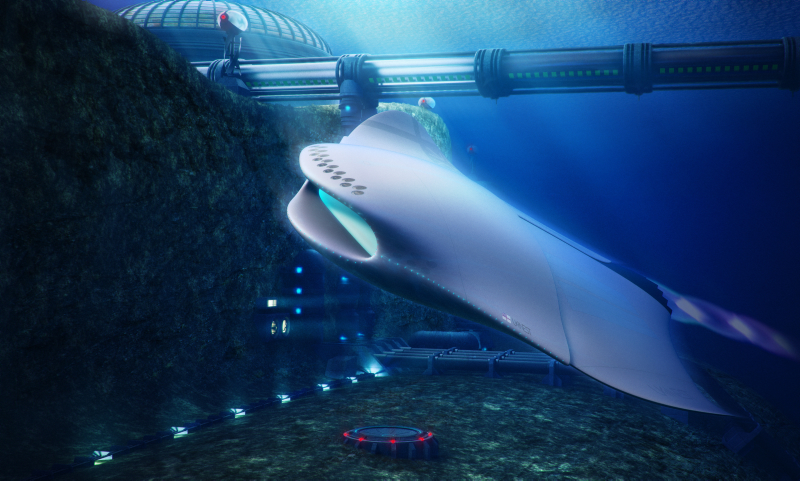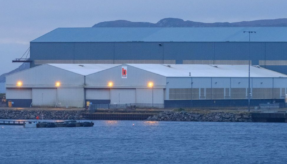
The UK’s best and brightest junior engineers and scientists have drafted a series of futuristic submarine concepts at the behest of the Royal Navy, which mimic real-life marine creatures and radically change the way underwater warfare might look 50 years from now.
A crewed mothership shaped like a manta ray, unmanned eel-esque vessels equipped with dissolvable sensor pods, and fish-like torpedoes that swarm hostile targets are among the many submarine concepts unveiled to inspire the next generation of underwater engagement.
Defence Minister Harriett Baldwin said: “These remarkable designs display the great promise of our young engineers and scientists and the great ambition of the Royal Navy.
“This kind of innovation is at the heart of defence and the UK’s world-leading capability. That’s why we are using our rising budget to invest in high-tech capability to keep our Armed Forces at the cutting-edge, and our £800M Innovation Fund aims to take advantage of exactly these kinds of futuristic ideas.”
The manta ray-shaped mothership would be built from super-strong alloys and acrylics, with cutting-edge surfaces able to take on other forms. Hybrid algae-electric cruising power and propulsion technologies – including tunnel drives which work along similar principles as the Dyson bladeless fan – would enable the submarine to travel at unprecedented speeds of up to 150 knots.

Commander Peter Pipkin, the Royal Navy’s Fleet Robotics Officer, said: “With more than 70% of the planet’s surface covered by water, the oceans remain one of the world’s great mysteries and untapped resources.
“It’s predicted that in 50 years’ time there will be more competition between nations to live and work at sea or under it. So it’s with this in mind that the Royal Navy is looking at its future role, and how it will be best equipped to protect Britain’s interests around the globe.
“Today’s Royal Navy is one of the most technologically advanced forces in the world, and that’s because we have always sought to think differently and come up with ideas that challenge traditional thinking. If only 10% of these ideas become reality, it will put us at the cutting edge of future warfare and defence operations.”
The science and engineering graduates and apprentices, aged 16 to 34, took the complex system requirements of an advanced submarine and applied the very latest technological innovations to make them easier to build, cheaper to operate, and even more deadly in battle.
Rear Admiral Tim Hodgson, the Ministry of Defence’s Director of Submarine Capability, said: “We want to encourage our engineers of the future to be bold, think radically and push boundaries. From Nelson’s tactics at the Battle of Trafalgar to Fisher’s revolutionary Dreadnought battleships, the Royal Navy’s success has always rested on a combination of technology and human skill.
“The pace of global innovation is only going to increase, so for the UK to be a leader in this race it needs to maintain its leadership in skills and technology. Hopefully this project has inspired the next generation of British scientists to be bold in their ambitions and I congratulate them for their inspiring work.”
If you would like to join our community and read more articles like this then please click here.







